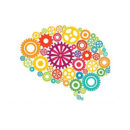Couples = Four in a Relationship
Have you ever been accused (or accused another) of acting like a child when having an argument?
Thing is, we are all recovering children; and our inner children do tend to make an appearance when in conflict with others. As I like to say, there are four of us in this relationship: you, me, and our two inner children. Your partner may well be correct. However, such a comment is more likely to escalate rather than diffuse an argument.
When in close relationships – it is inevitable that issues from our childhood will arise. The ways we learned to deal with vulnerability and unmet needs will tend to play out in adulthood in some shape or form. Ironically, the closer and more intense the relationship – the messier things can get – a “collision of imperfections” as Dr Phil puts it. Rather than avoiding and blaming each other – how about recognizing the opportunity to get it right this go around? How about becoming allies rather than enemies in the process? Such that, rather than focusing on the conflict, how about shifting attention to the opportunities for self-growth and development? Relationships hold up a mirror to our inner selves, enabling us to heal and transcend our past, and embrace our potential going forward.
To reap the benefits, takes enduring the discomfort of facing issues from childhood. This is not unlike putting cleansing antiseptic on an open wound, knowing the sting is temporary and condition for optimal recovery. Keep in mind what your ultimate goal may be? Is it to be right? Or to be happy? To be feel connected? To build bridges?
If the latter — try being grateful that buried issues are being brought to the light of day. Recognize that not only have two inner children come out to play or fight, but that you as the adults are now here to help your ‘kids’ express and address their needs and resolve their fears.
While we are not responsible for the conditions that bred each other’s Inner Child issues, we are responsible to our partners to acknowledge their pain, and to be helpful and supportive within reasonable bounds.
So, next time (and there will always be a next time), instead of being dismissive or using the appearance of an inner child as a weapon, cue to compassion and refocus on the opportunity for getting to know one another on a deeper and more intimate level; to seizing the opportunity for healing and strengthening. You can help each other to harness the courage for facing what needs to be faced to shake off old patterns and hurts, and moving on to a more flourishing and harmonious relationship. Feeling more known and accepted will quiet and soothe the vulnerable space within so the adults can get on with growing and evolving.
If this appears too daunting and time-consuming – a professional can ease you into and accelerate this process.





